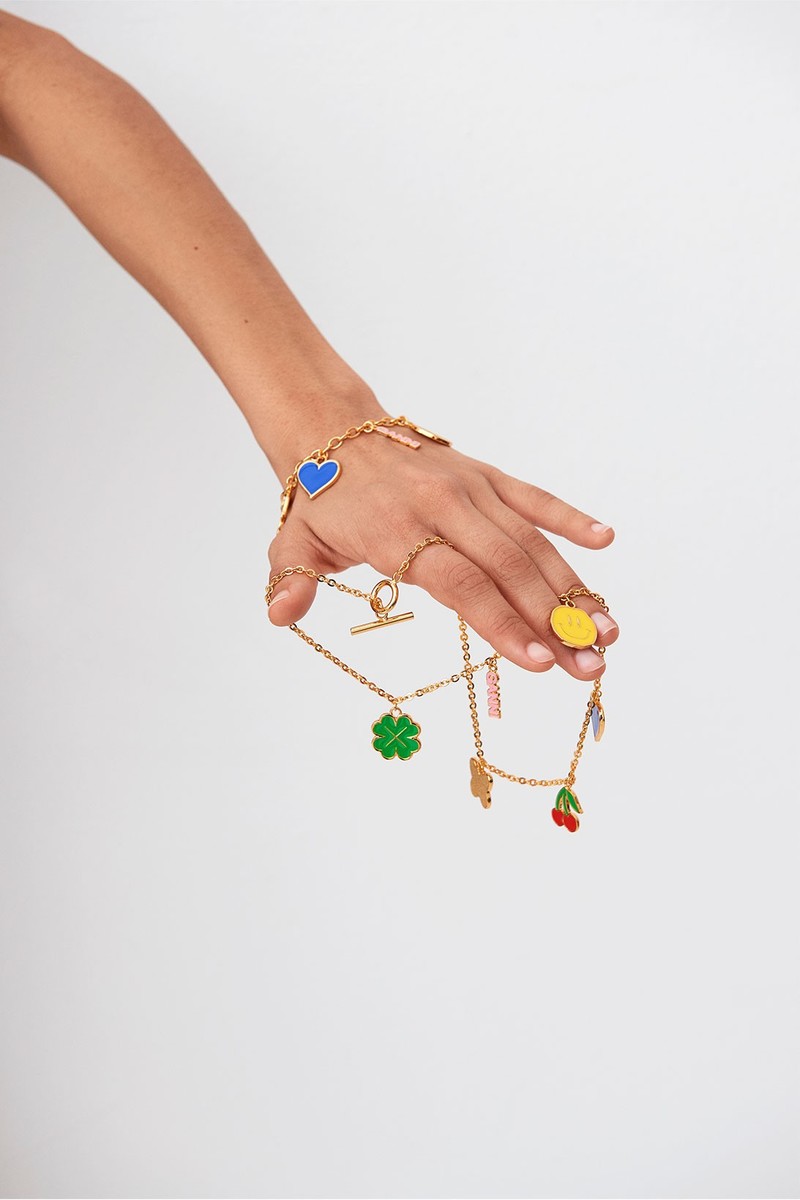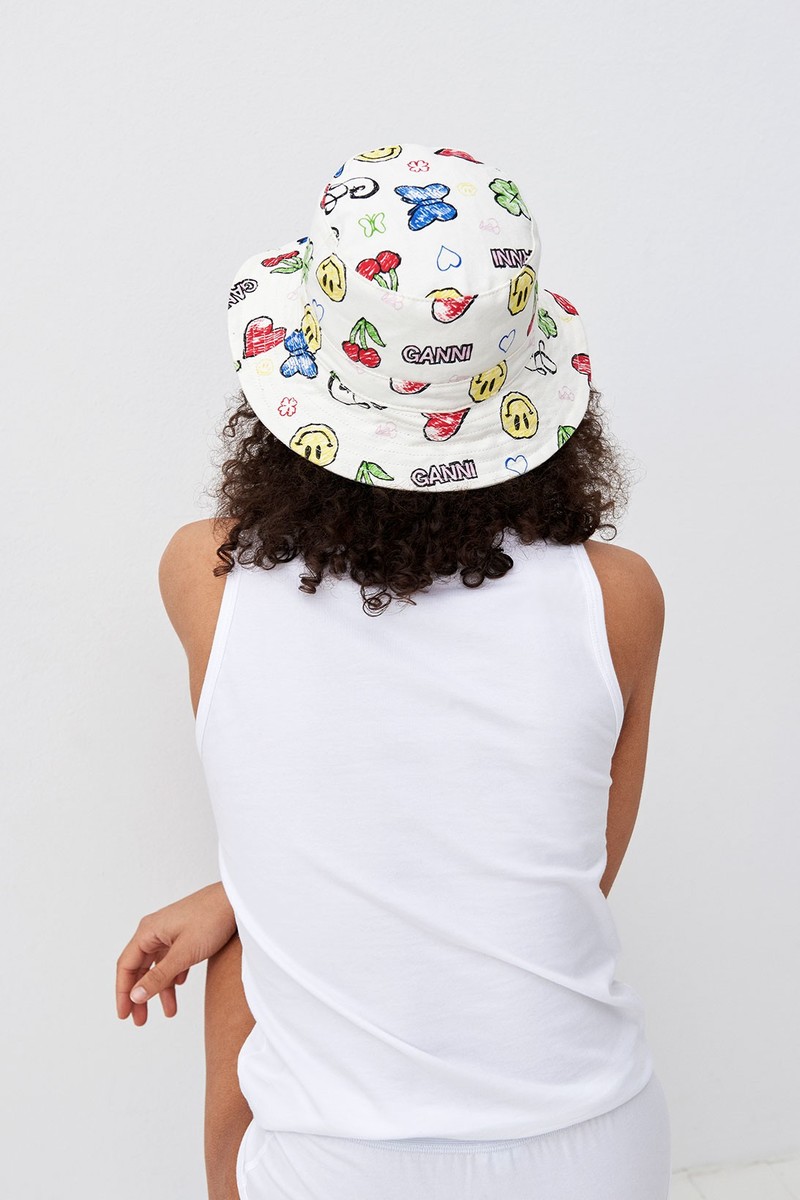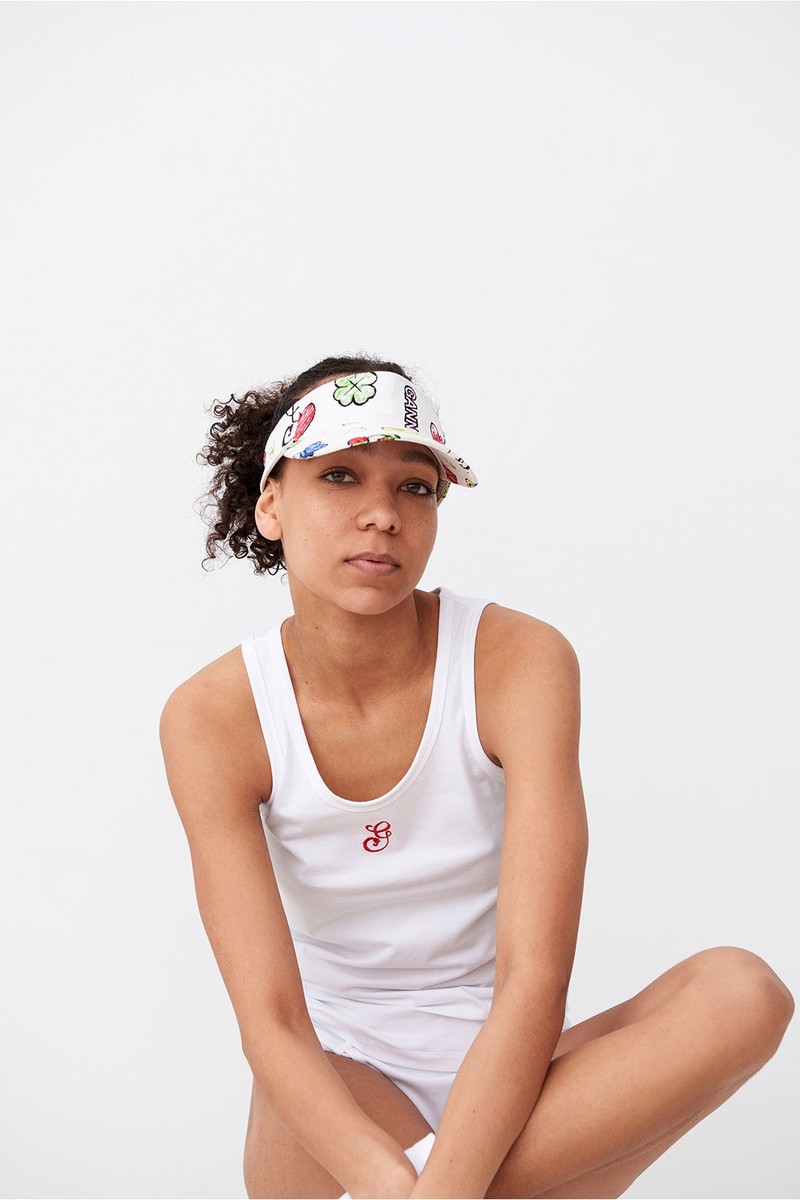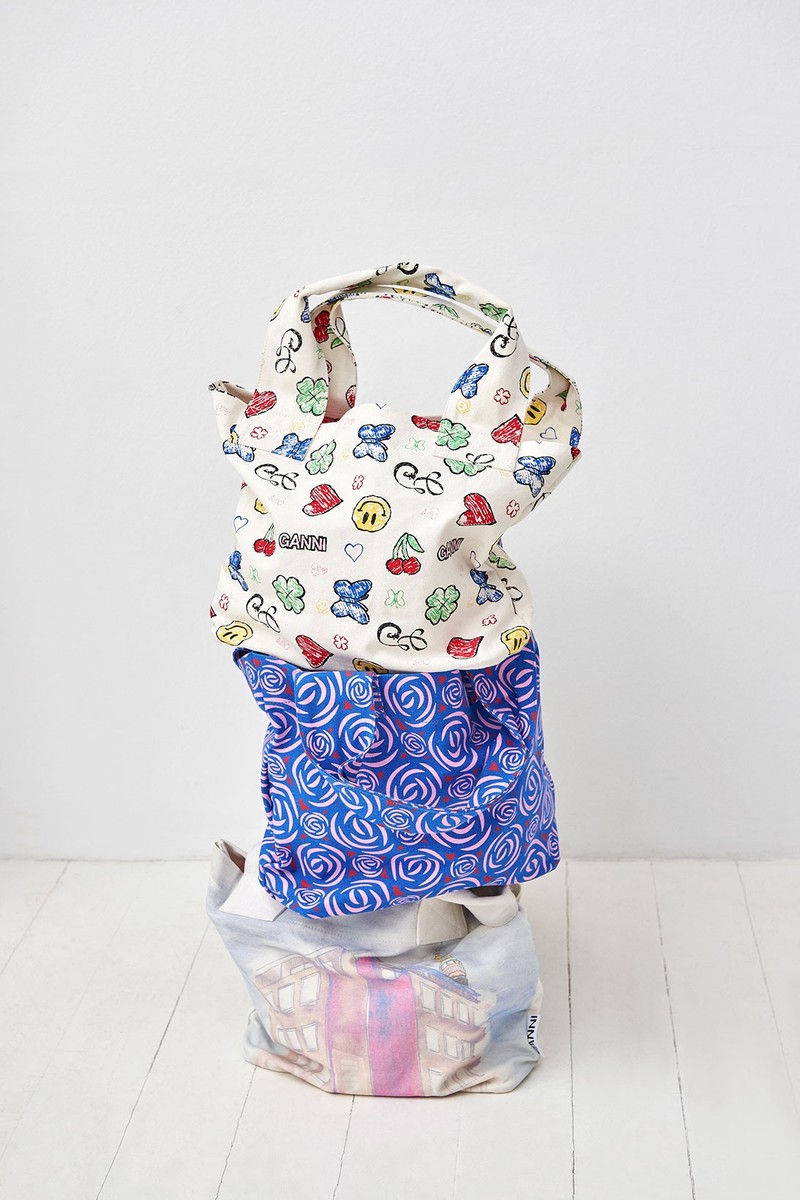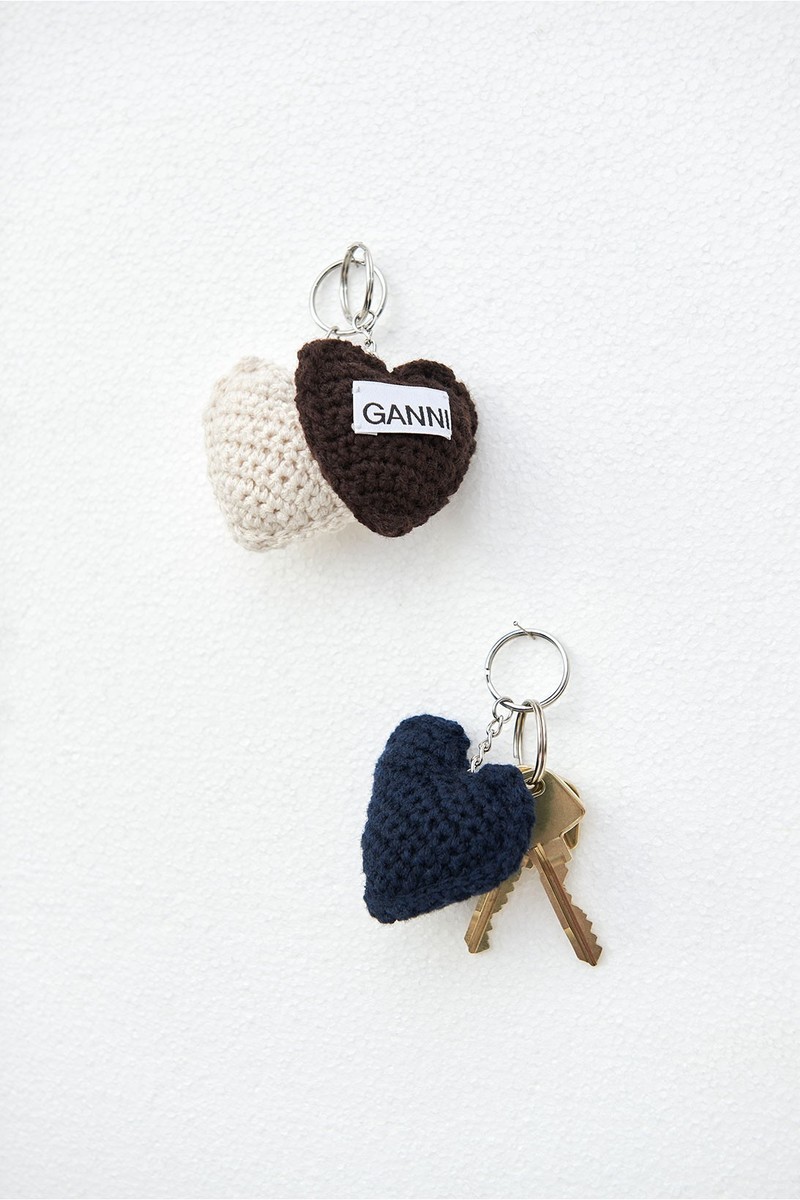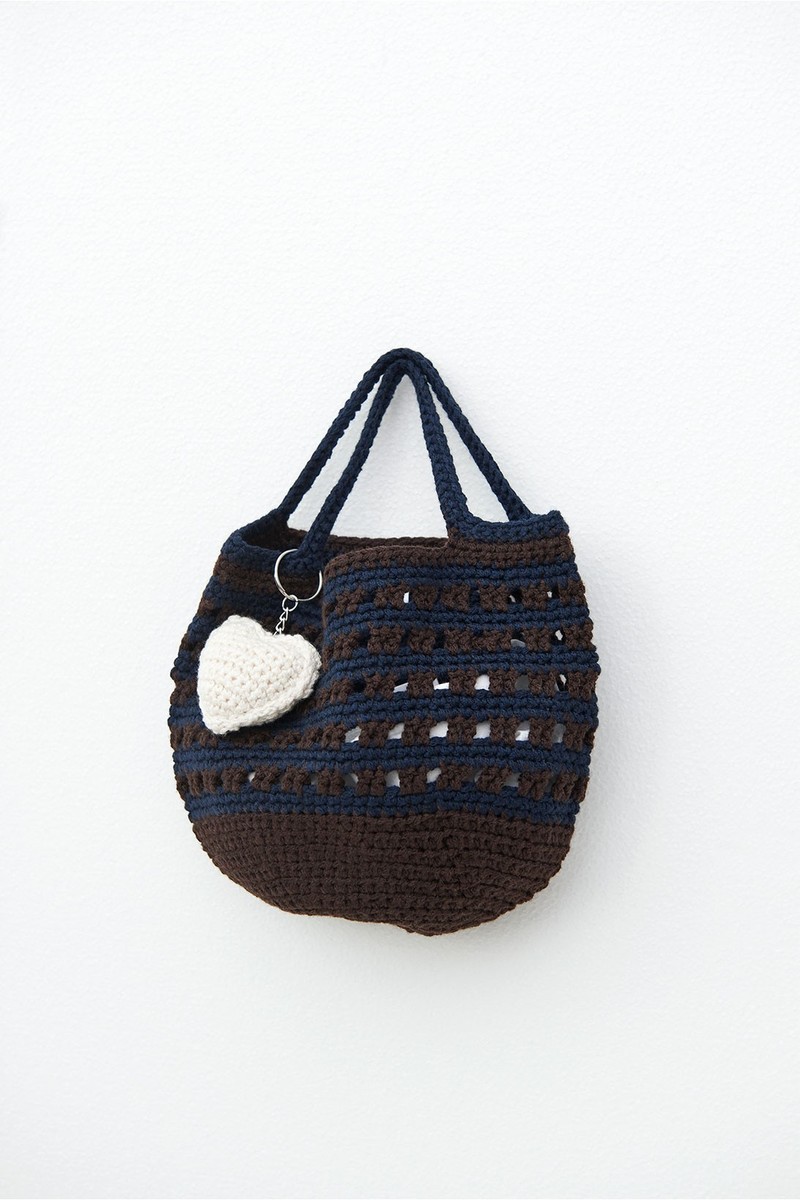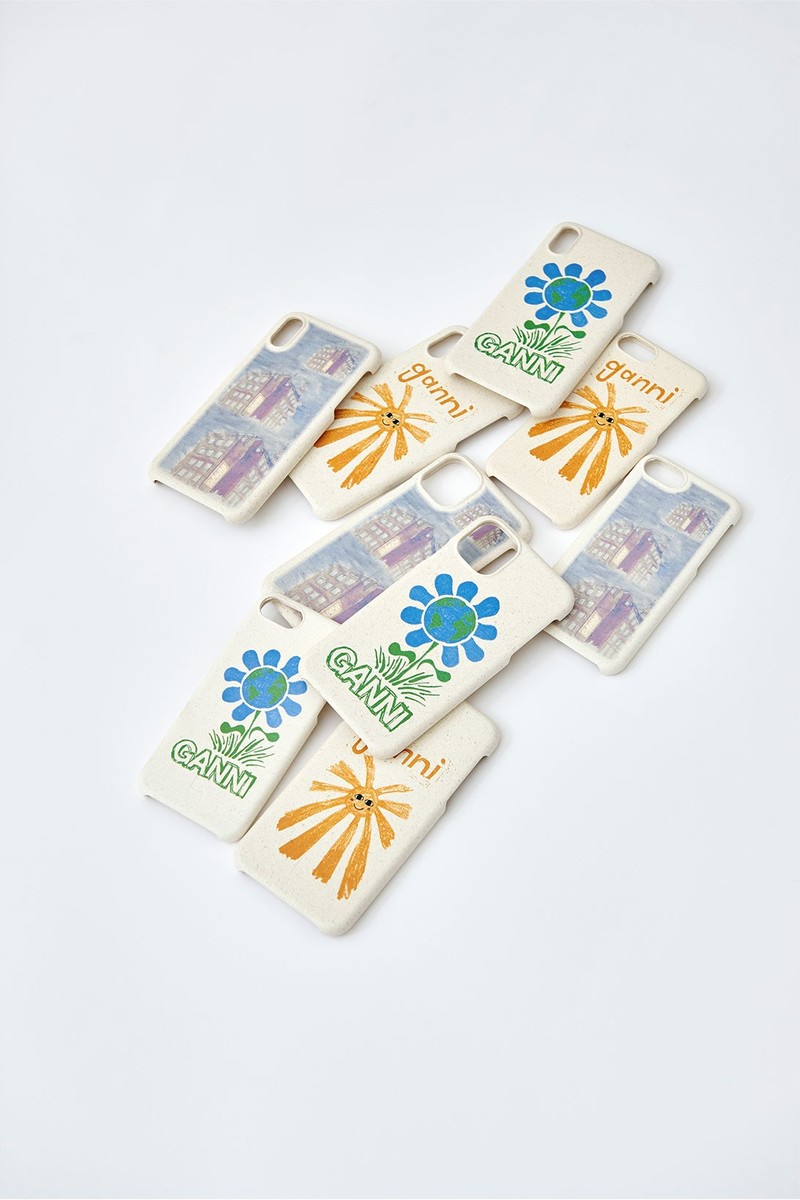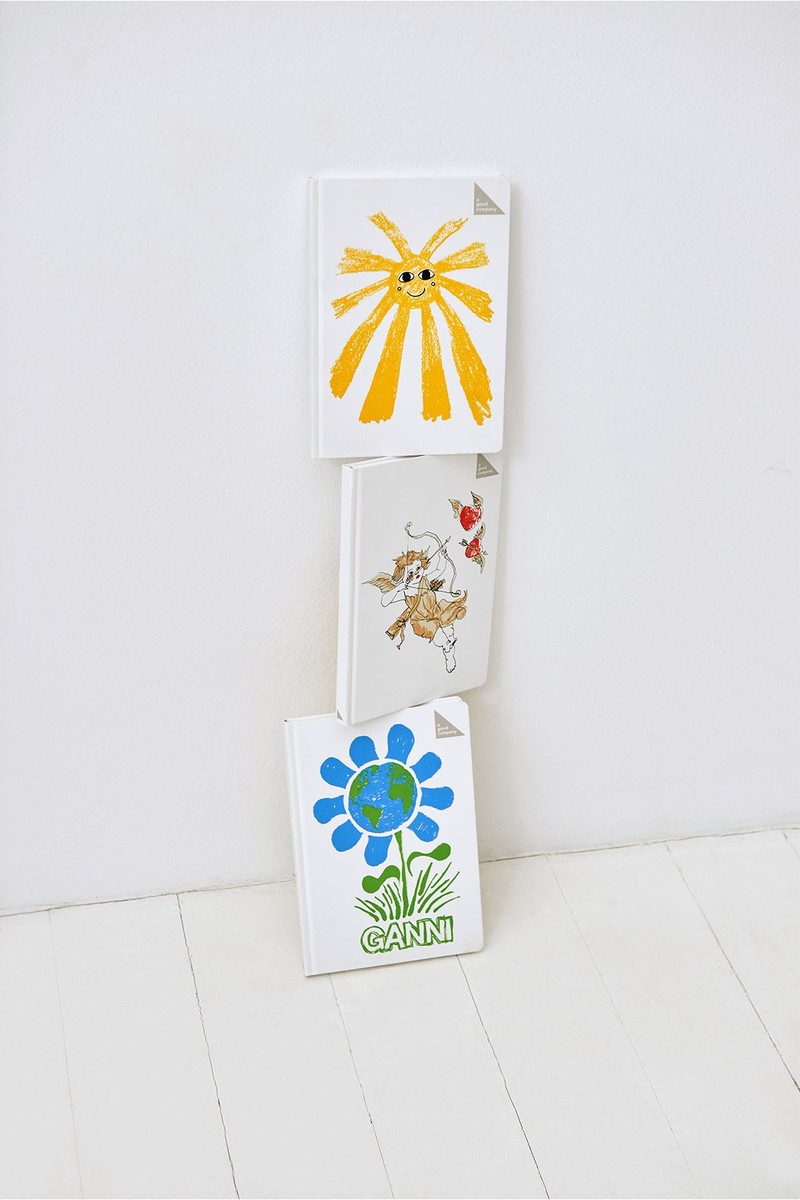Greenhouse Ganni: Ganni Kiosk’s New Responsible Accessories
The new capsule collection comprises of responsibly made, ecologically conscious, accessories.
Ganni’s relationship with sustainability is a complex, but fully transparent one. On their website they are open about their efforts to move towards a sustainable fashion future. However, they acknowledge that they currently cannot be fully sustainable due to their seasonal collections and perpetuation of cyclical fashion. As Ganni introduces themselves so glaringly on their website’s “Responsibility” page, Ganni is “NOT A SUSTAINABLE BRAND.” This statement continues in explanation, saying, “We don't identify as a sustainable brand. We recognize the inherent contradiction between the current fashion industry that thrives off newness and consumption, and the concept of sustainability. So instead, we're focused on becoming the most responsible version of ourselves. Committed to making better choices every day across the business to minimize our social and environmental impact. We see this as our moral obligation.”
Efforts to avoid greenwashing labels have created a transparency between brand and consumer that has translated well for prospective customers. Those trying to make conscious fashion choices in the direction of sustainability have responded well to the brand’s developing commitment to responsible fashion. It may not be fully sustainable, but Ganni does not contribute to the production of traditional fast-fashion, or to the dangerous craze of baseline greenwashing, that other fashion houses arguably do. The brand’s acknowledgment of their sustainable status is also endearing to many of their clients.
As a result of this, Ganni’s “Responsible” collections have created a new wave of interest in sustainability within the fashion world. Their recent collection with Levi’s was, according to the website, “Built on authenticity, originality, and responsibility.” The collection was made from cottonized hemp— a cotton alternative that uses 70% less water than normal cotton to produce. This denim-peter-pan-collared collection was a pivotal moment for both Ganni and Levi’s as it displayed a poignant move towards a more sustainable fashion future by two influential, mainstream fashion-houses.
As if inspired by the success of this collection, Ganni has extended their Ganni Kiosk initiative to bring a range of responsible accessories to the product line. The Ganni Kiosk was started back in 2018 on the direction of Ganni creative direction, Ditte Reffstrup. “I wanted to mirror the feeling of walking into your Copenhagen neighborhood kiosk,” she said. The only difference with this new capsule collection is its duty of responsibility. The products, which range from clothing basics, to iPhone cases, to pens, are made in varying degrees of responsibility. However, it is a clear move from Ganni towards a conscious future for the brand.
Some of the many products in this collection are made in partnership with “Agood Company”— a Swedish based initiative that focuses on producing products that are circular, plastic free, and carbon negative. For example, the collection’s iPhone cases are 100% plant-based and, according to Ganni’s website, made with “byproduct from organic flaxseed farming. Leftovers from the organic flaxseed plants are turned into pellets, which are then molded into phone cases.”
The iPhone cases are also fully decomposable and can be “industrially composted”. The pens are also made in collab with the Swedish sustainable shop and are made from renewable grass and BPA-free recycled plastic. The pens are also made in a factory which runs 100% on solar panel electricity. This same energy-free factory also grinds leftover stone from local industries to make paper for the capsule collection’s notepads. As the product description says, “This tree-free paper minimizes water usage, deforestation, energy consumption, and the use of polluting chemicals.”
In terms of fabrics for the clothing and textile-accessories in this capsule collection, Ganni uses organic cotton. Underwear, basics, bags, hats and scrunchies, are all made from this more responsible source of cotton that Ganni reports “has a much less environmental impact than conventional cotton. It reduces water usage, greenhouse gas emissions, and the amount of chemicals used.” The brand’s other fabric products— such as the crochet bags and keychains— are made from repurposed wool-blend yarn that has been leftover from previous Ganni collections. Repurposing materials is a clear focus from within the brand’s responsible initiative.
Whilst Ganni cannot commit fully to a sustainable fashion future at present, its transparency and shift towards environmental responsibility is a promising change from within the fashion-world. Their interview on “The Wardrobe Crisis” podcast explores more about their moral, ethical and ecology journey towards a responsible future. Whilst the road to a sustainable fashion future is a long-one, encouraging movement from mainstream brands such as Ganni will hopefully stimulate widespread change in shopping attitudes.
The capsule accessory collection is live now and available to buy here.
Next up, Introducing Fjällräven Samlaren: The Pioneering Sustainable Initiative Changing The Game



